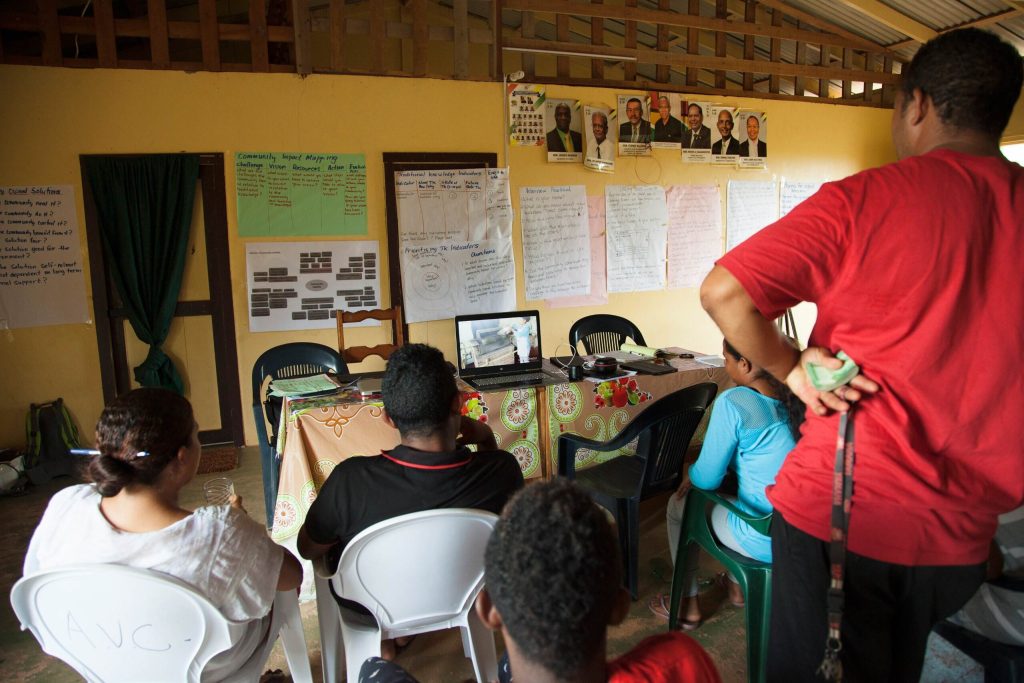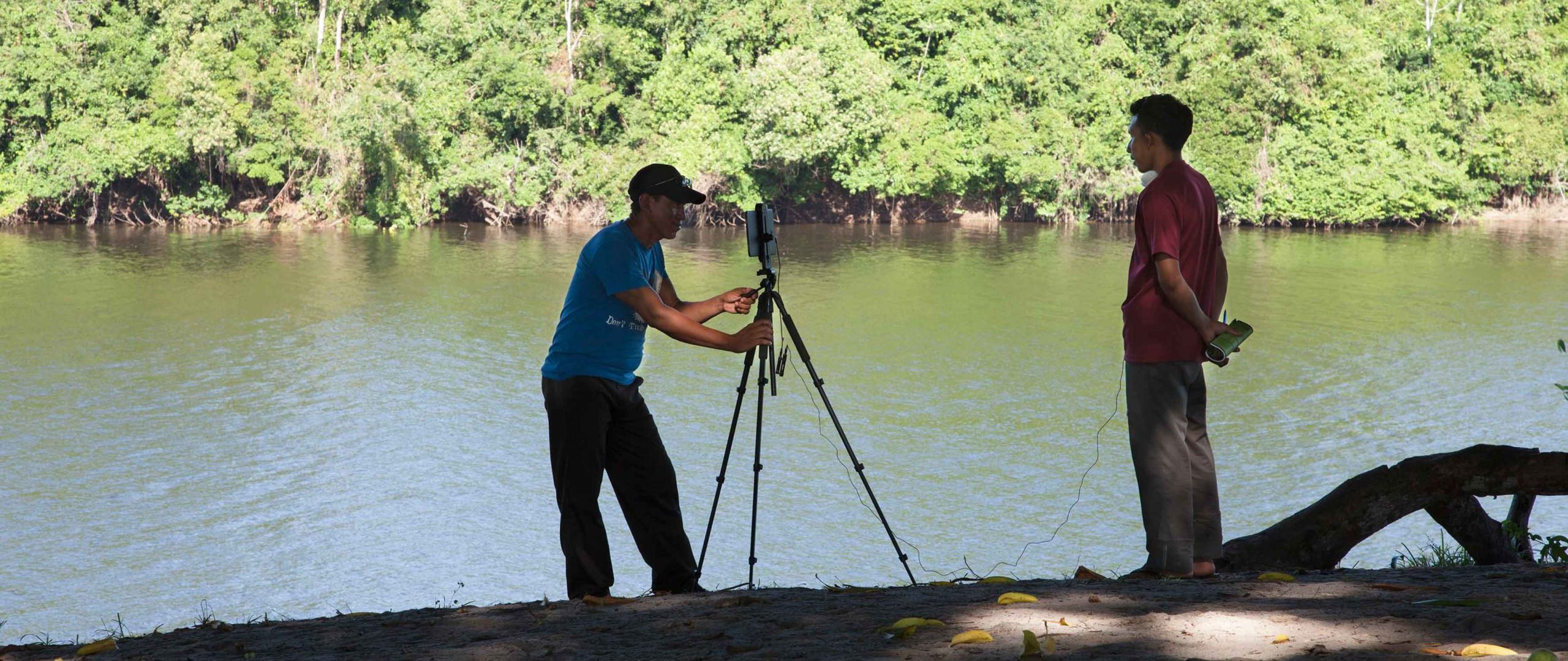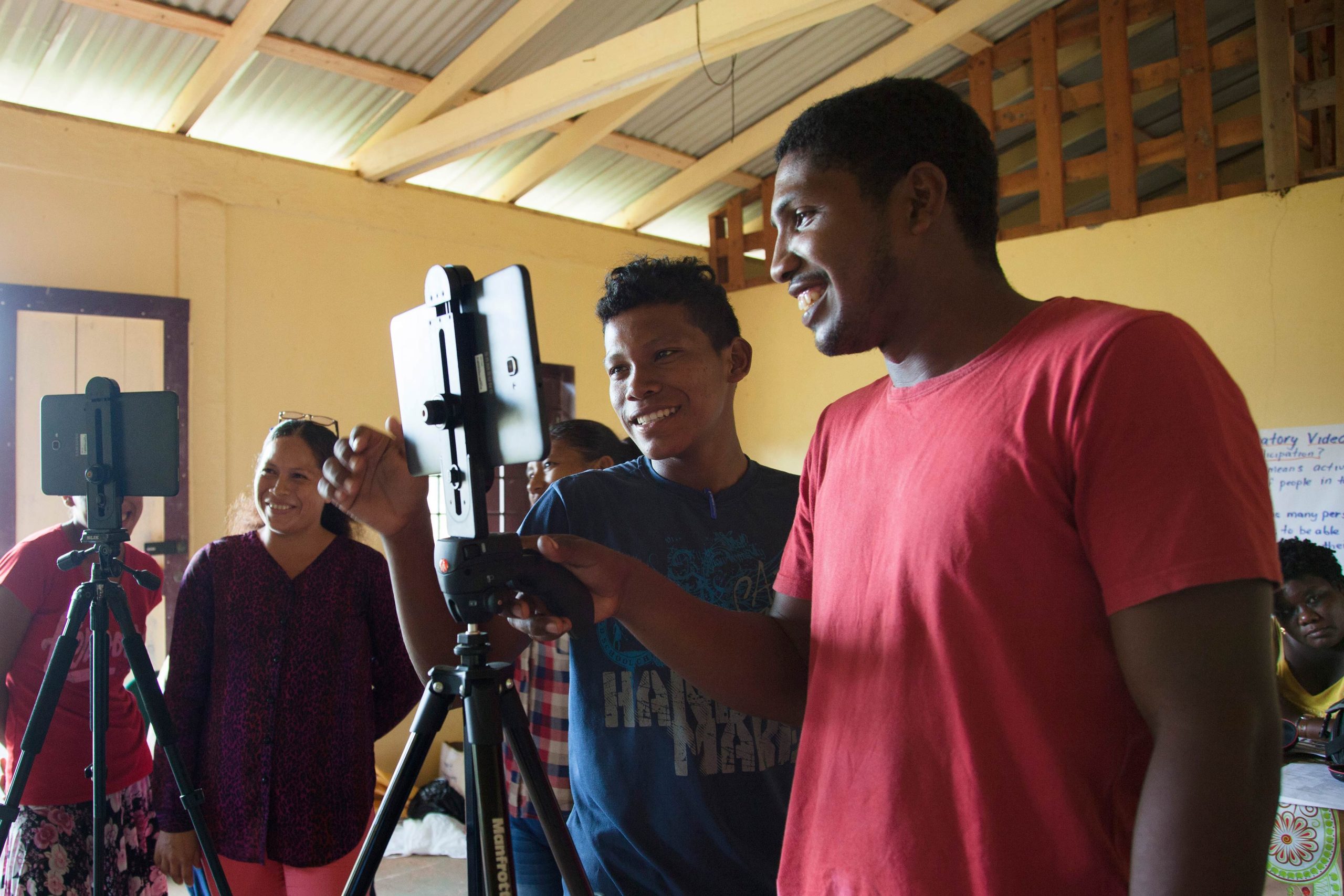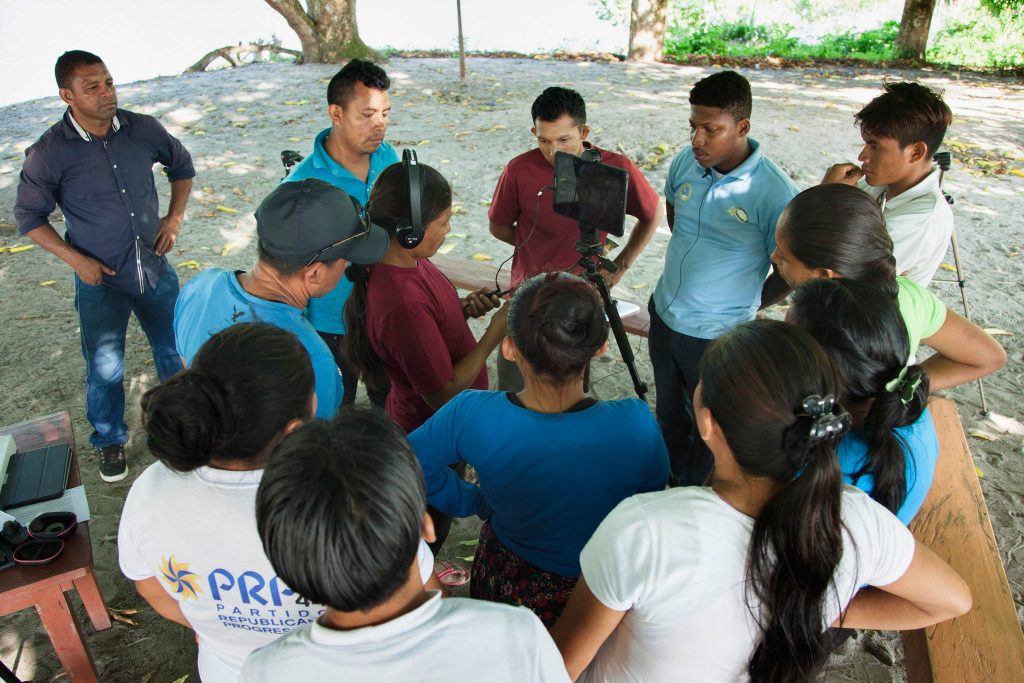Participatory video and community owned solutions to increase representation within environmental management and governance
| Lead | Royal Holloway and Bedford New College |
| REF Panel | C- Social sciences |
| REF UoA | 14 – Geography and environmental studies |
| Locations | Brazil, French Guiana, Guyana, Suriname, Venezuela |
| Funders | Department for Environment, Food and Rural Affairs (DEFRA), European Union (EU), Foreign and Commonwealth Office (FCO)1, The British Academy, The Woodspring Trust, United Nations Development Program (UNDP) |
| Funds or grants | Darwin initiative, EU Seventh Framework Programme, Global Environment Facility (GEF) Small Grants Programme, Strategic and Bilateral Programme Fund |
| Partners | In Guyana: North Rupununi District Development Board, Ministry of Amerindian Affairs, Environmental Protection Agency, Protected Areas Commission. In UK: Royal Holloway University of London, Cobra Collective, The Open University. In Venezuela: Universidad Simón Bolívar. |

“In the communities we work with, we consult with the village council to determine the scope of our project and the stipend budget. The council then decides how to distribute the funds among the community researchers. Since our team made regular visits, they would bring the allocated money to pay individuals while assessing the required tasks.” UK-based researcher
While Indigenous communities are recognised for their sustainable management approaches, their socio-economic and environmental views and needs are often neglected. Collaborations between UK-based and South American researchers, civil society organisations, and Indigenous communities advocated for the inclusion of Indigenous knowledge in decision-making processes. The research explored two topics: (1) the effects of participatory video approaches in Indigenous communities’ engagement and capacity building and (2) approaches for including Indigenous voices in national decision-making forums on environmental management and governance.
Key Impacts
Deepening awareness on Indigenous knowledge and supporting local capacities through participatory videos
- Training of 100 Indigenous researchers in Guyana in participatory video methodologies served as a powerful communication tool for sharing and raising awareness on their communities’ views and practices and influencing opinion among policymakers.
- Participatory videos showcased the role of Indigenous knowledge in biodiversity conservation and climate mitigation. These videos influenced the perception of policymakers on the connections between culture and biodiversity. They also fostered pride and intergenerational transmission of ancestral knowledge.
Deepening the understanding of Indigenous knowledge among policymakers and Non-Governmental Organisations (NGOs)
- In Guyana and Venezuela, Indigenous associations, government agencies, and NGOs collaborated on the research and development of training courses. This led to improved skills and knowledge, helped shift perceptions around the value of Indigenous knowledge, and modified the way in which policymakers and social organisations involve Indigenous communities in local projects.
Greater representation of Indigenous knowledge in policymaking processes
- In Guyana, intercultural workshops and video-mediated dialogues provided safe spaces for dialogue, fostering solidarity and collective agency. They also improved relationships between Indigenous communities and protected area managers, resulting in the development of the Traditional Knowledge National Action Plan (TKNAP) to strengthen Indigenous knowledge preservation and usage.
- Workshops on fire management in Venezuela and Brazil facilitated understanding, empathy, and mutual trust among Indigenous leaders, government agencies, and academics. Venezuelan government ministers now recognize and accept Indigenous fire management practices, leading to policy changes.

Underpinning research enablers


Embed ethics around research funding and aims
- Budget allocation for community participation: Salary payment was discussed with the village council for all community researchers involved in the project. Amid budget constraints, research management decisions mindfully factored in hidden costs for community participation (e.g., childcare needs or transport costs when commuting to locations with reliable internet connectivity).
- Benefits of an ongoing participatory consent process: Participants’ engagement and data collection were framed around principles of safeguarding and equity, diversity, and inclusion. Constantly checking that Indigenous communities felt comfortable and adequately represented in the research process fostered a high level of participation from these communities in defining the desired outputs and relevant dissemination alternatives along with creating the audio-visual materials. After the project ended, it also enabled stronger local ownership of the materials as well as subsequent dissemination and community research activities.
Recognise the role of local intermediaries
- Considering invisible work: Research benefitted from a lot of voluntary brokering work undertaken by community leaders (e.g., negotiations with different leaders, supporting methodology application of community researchers, encouraging local engagement).
- Leveraging connections with key individuals to encourage buy-in: As non-academic partners in South America transitioned to other positions or organisations, sustained relationships with them facilitated the dissemination of research value to senior management and fostered community ownership.
